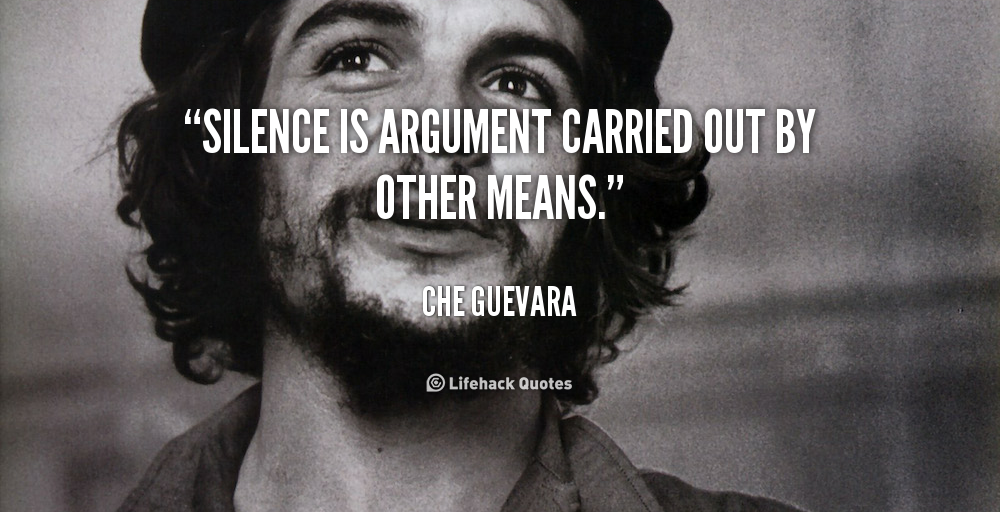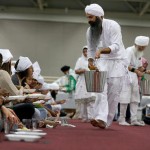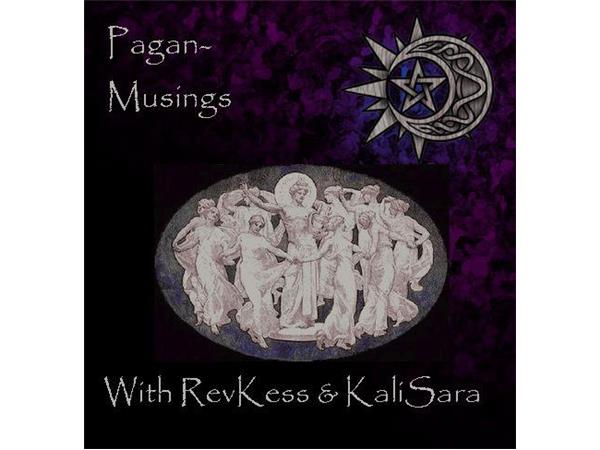My kids are 13 and 16. And they bicker sometimes. And sometimes more than a little. I have little patience for it. As Bill Cosby said, “Parents don’t care about about justice. They only want quiet.” My solution for a long time was to tell them both to stop talking. Then, at one of our weekly family meeting, my kids told me that my way of dealing with their arguing wasn’t working. “If we just shut up,” they said, “we’ll never learn how to work out our problems.” My kids are smart. And I think they were right.
If you surf the Pagan/Polytheist blogosphere much, you will inevitably come across arguments. They may be arguments over theology, practice, or politics. Some of these arguments are acrimonious. But I believe that the solution is more discussion, not less. Ending the discussion does not bring real peace. It produces quiet, which is only the illusion of peace.
Recently, a Polytheist blogger, PSVL, wrote a thoughtful post about the conflict between the Polytheist and atheist Pagan communities, and the challenges of “delineating” our differences in a respectful way. E alludes to “a great deal of outright hatred” expressed toward me personally at the recent Many Gods West conference, which gathered about 200 Polytheists from around the country. Apparently, it’s gotten to the point where some perceive the online arguments to be a kind of “war” between our communities — so PSVL has called for a “truce.” E* proposed that we no longer write about each other’s viewpoints, and e invited me and anyone else in the Atheopagan and Humanistic Pagan communities to join em in this truce. I appreciate PSVL’s intention, but I cannot agree to the terms of eir truce.
There’s two separate conflicts going on, both of which center on the meaning of “polytheism.” And silence is not the solution to either one. I’ll address each in turn.
Small-p polytheist Pagans
On the one hand, we have the issue of the relationship between Paganism and small-p polytheism. There are Pagans who are polytheists, and there are Pagans who are not polytheists. Examples of Pagans who are not polytheists include pantheists, animists, duo-theistic Wiccans, monistic Goddess worshipers … and yes, atheist Pagans … and others as well and combinations of these. In spite of this diversity within the Pagan family, I continue to encounter polytheist Pagans who will say that polytheism and Paganism are synonyms, and that one cannot be a Pagan without also being a polytheist. These individuals fall into two categories. In the first category are individuals who are simply uninformed. They simply need to be educated. I have found John Beckett’s “Big Tent” metaphor useful, which compares the Pagan community with a large circus tent with multiple poles or “centers” with overlapping circumferences: Earth, Deep Self, and Deity. Those who congregate around the Deity “pole” are under the big tent of Paganism and just need to take note of those congregating around other “poles.”
But not everyone who conflates Paganism with polytheism is simply misinformed. In this second category are others who actively and aggressively attempt to define Paganism in such a way so as to exclude non-polytheists. These folks want to evict non-polytheists from the Pagan tent. Of course, they have no authority to do so. But they do have the power of speech, and words have a way of defining reality if they are unchecked. So a response is necessary in these cases, too. Some of the individuals in the second category may not be convinced by any amount of reasoning, but they should not be allowed to dominate the public conversation, nor should they be allowed to mislead the people in the first category.
Silence is not an option in either of these cases.
Non-Pagan Capital-P Polytheists
On the other hand, we have the issue of the relationship of Paganism and capital-P Polytheism. At the same time that there are polytheistic Pagans who are attempting to exclude non-polytheists from the Pagan community, there are also Polytheists who want to separate themselves from the Pagan community. In effect, they want to create a Polytheist movement apart from the rest of Paganism. PSVL compares the separatist Polytheist movement to a divorce. I think it’s an apt comparison. For some, it is an amicable separation, for others a litigious battle. But in any case, the two groups have to work out the new boundaries of their relationship. Why? Because we have a shared vocabulary and a shared constituency. Think of it as marital property and children. And like any divorcing couple, we need to work out these issues.
First, there is a dispute over “marital property” — the gods. There are those within the emerging Polytheist movement who want to appropriate to themselves the whole meaning of the words “gods,” “deities,” and “polytheism.” They want “sole custody” of the gods, so to speak. The recent argument over my so-called “appropriation” of the images of the gods in the header for this blog (here and here) is just the most recent example of this presumption.
Second, there is a dispute over custody of the “children” — our shared constituencies. Of course, in this case, the “children” are adults and can make up their own minds. But that does not keep one side or the other from trying to claiming them. For example, I frequently hear those in the separatist Polytheist movement presume to speak for all polytheists (PSVL has done this). But the fact is that there are polytheists who still want to be a part of the Pagan community. And there are polytheist Pagans who do not want to be a part of the separatist Polytheist movement. And I’m not even talking about “archetypal polytheists” (to borrow W.D. Wilkerson’s term from Walking With the Gods) here. I’m talking about polytheists who believe in deities as individual, distinct beings existing outside of the human mind. Not all polytheists want to secede from Paganism. Some of them want the freedom to hang with both groups. So the hope of ever having any clear line of demarcation between the Pagan and Polytheist communities is just wishful thinking. Like it or not, Pagans and Polytheists are going to have to continue to deal with each other.

My wife is a marriage and family therapist, and she frequently encounters divorcing couples who believe that they will never have to talk to each other after the divorce is finalized, despite the fact they have children together. The fact is, whether they like it or not, they will likely have to settle for a shared custody arrangement, and they will have to learn how to co-parent their children. They will continue still see each other during visitations and at birthdays, family reunions, weddings, funerals, and so on. Not talking to each other is not an option.
And the same goes for Pagans and Polytheists. There will never be a clean separation between us. There will always be people who move back and forth between the two communities, like children of a joint custody arrangement. And we will continue to use much of the same vocabulary, albeit using many of the same words to mean different things. We will continue to bump up against each other in online and IRL forums.
So silence is not an option in this case either. We need more conversation, not less.
That being said, we can learn to speak to and about each other more respectfully — for our own sake and for the sake of “the kids.” I just returned from the Parliament of the World’s Religions. Gathered in one place were Catholics and Protestants, Buddhists and Jains, Muslims and Sikhs, Hindus and Pagans, members of various indigenous faiths and others. You might think that all the talk at the Parliament was about what we have in common. While there was plenty of talk about oneness and harmony, there was an equal amount talk about our diversity and our uniqueness. For five days members of these diverse religions not only co-existed, but created community together. They did this, not by ignoring each other, not by being silent, but by continuing the conversation. They sought first to understand before they sought to be understood. They asked questions. They were genuinely curious. They spoke with the goal, not of ending the conversation, but continuing it. And we must do the same.
So now seems a good time to announce that we are testing the World Table comment system here on this blog. It’s easy to use. If you already have a Facebook, Google, or Twitter account, you’re ready to go. The goal of the system is to encourage accountability in commenting. This will largely eliminate anonymous trolls and remind the rest of us that online conversations are not exempt from the rules of etiquette. So try it out below, and let me know whether you like it or not, and why.
*PSVL’s preferred pronouns are e, em, and eir.













